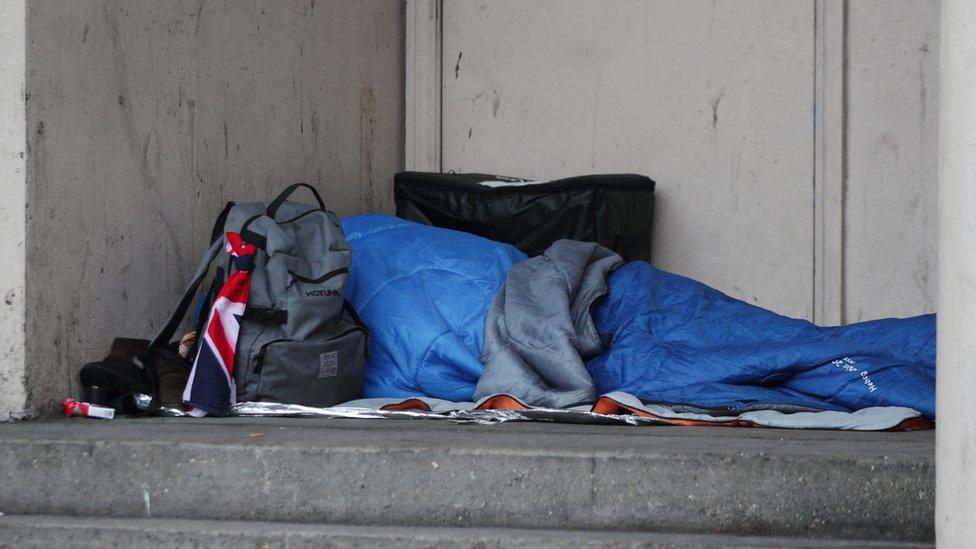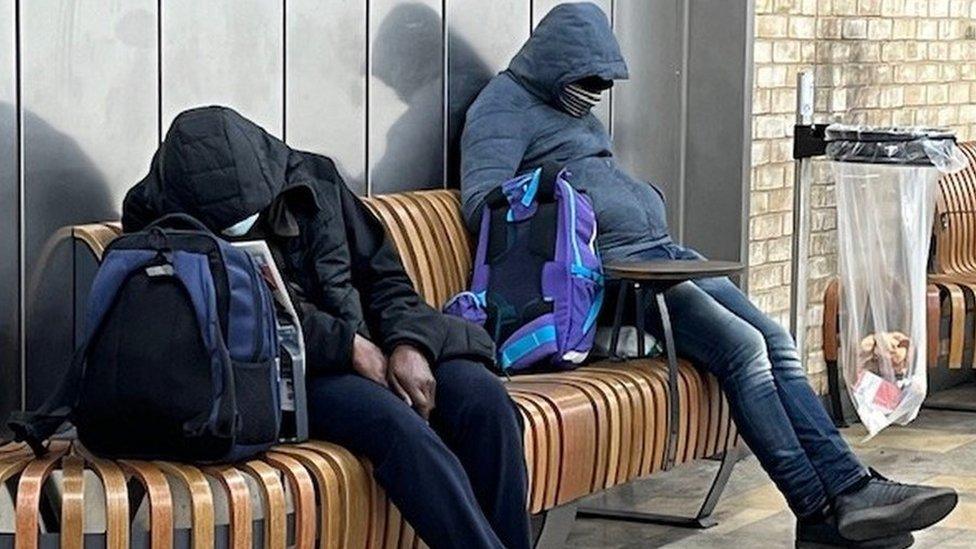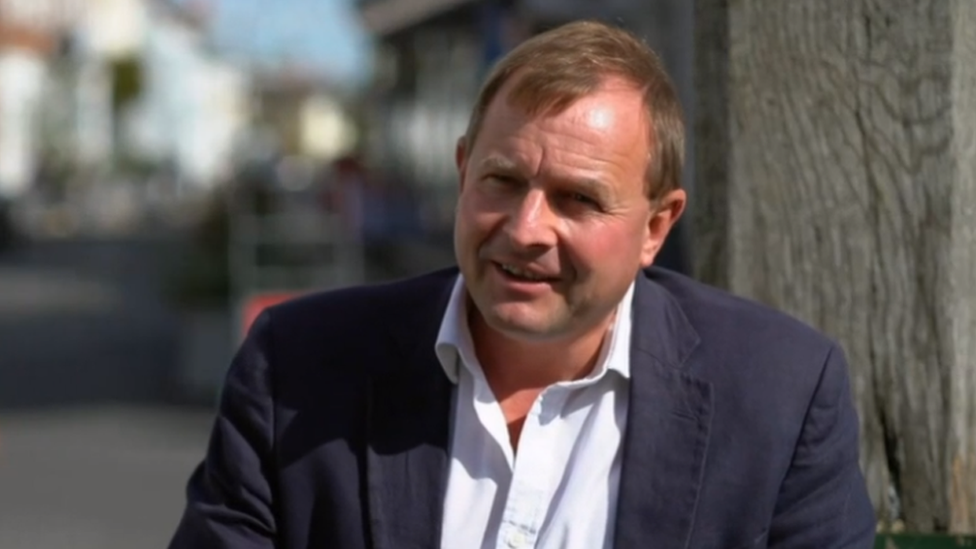Reduction in Norwich rough sleepers 'remarkable', says charity
- Published

Norwich bucked the national trend with rough sleeping rising across England
A charity says a reduction in rough sleepers in Norwich is "remarkable" amid current economic challenges.
New government figures state that in Autumn 2023 there were just five rough sleepers in the city.
It is the third year in a row that the number of rough sleepers has decreased, bucking national trends.
The St Martins Housing Trust said its ultimate goal of ensuring no one has to sleep rough was "within touching distance".
Each year volunteers in council areas go out and count rough sleepers for the national annual street count.
In 2016 the number of rough sleepers in Norwich was 34, reduced to five by 2023, according to the data.
In 2022 there were seven rough sleepers counted.
'Better than most'
Across the East of England, the number of rough sleepers in one night was up 18% in 2023 compared to 2022, and across England it had risen by 27%.
St Martins chief executive, Dr Jan Sheldon, said: "Given all the economic challenges that we currently face this achievement can only be described as remarkable.
"St Martins is within touching distance of our vision of ensuring that no one sleeps rough on our streets."
She said funding, political will and social housing were needed to end rough sleeping in the long term.
Dr Sheldon said there was political will in Norwich, and that it did "better than most" in terms of funding and housing provision.
She also thanked the local community, volunteers and local businesses for supporting the charity's work.
Dr Sheldon said: "Without the specialist support provided and access to supported living environments, there would undoubtedly be more people sleeping rough in Norwich.
"St Martins provides more than a home for the homeless.
"Together we save lives, provide specialist support and help people to lead the lives they want to lead. Rough sleeping is never a life ambition or a lifestyle choice."

Follow East of England news on Facebook, external, Instagram, external and X, external. Got a story? Email eastofenglandnews@bbc.co.uk, external or WhatsApp 0800 169 1830
Related topics
- Published29 February 2024

- Published26 July 2023
